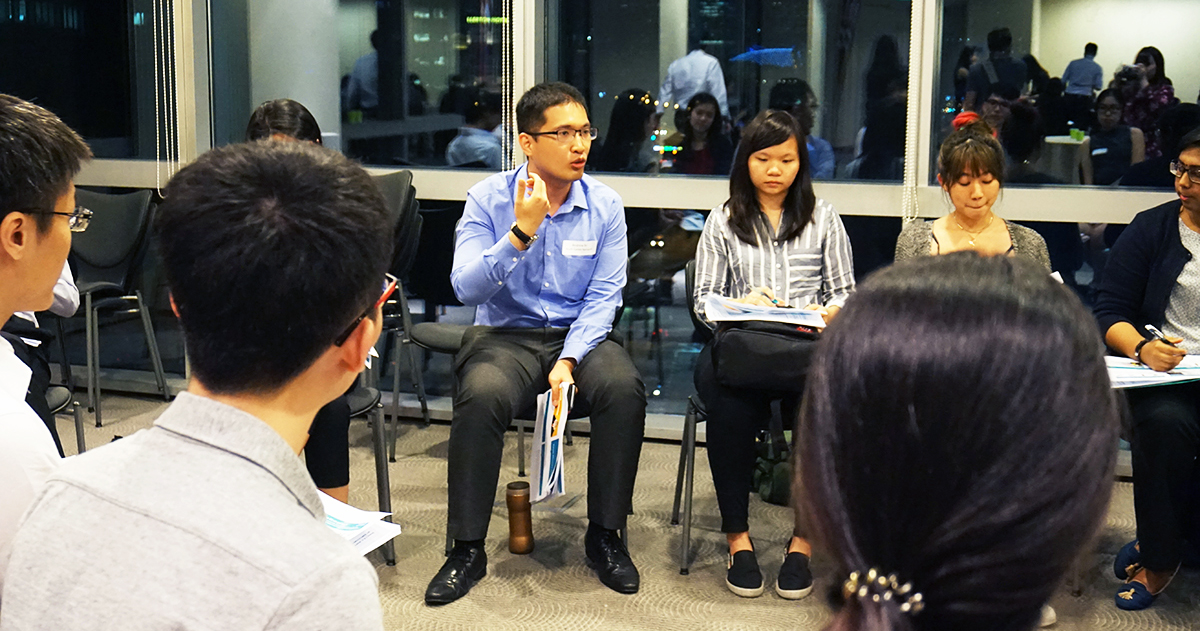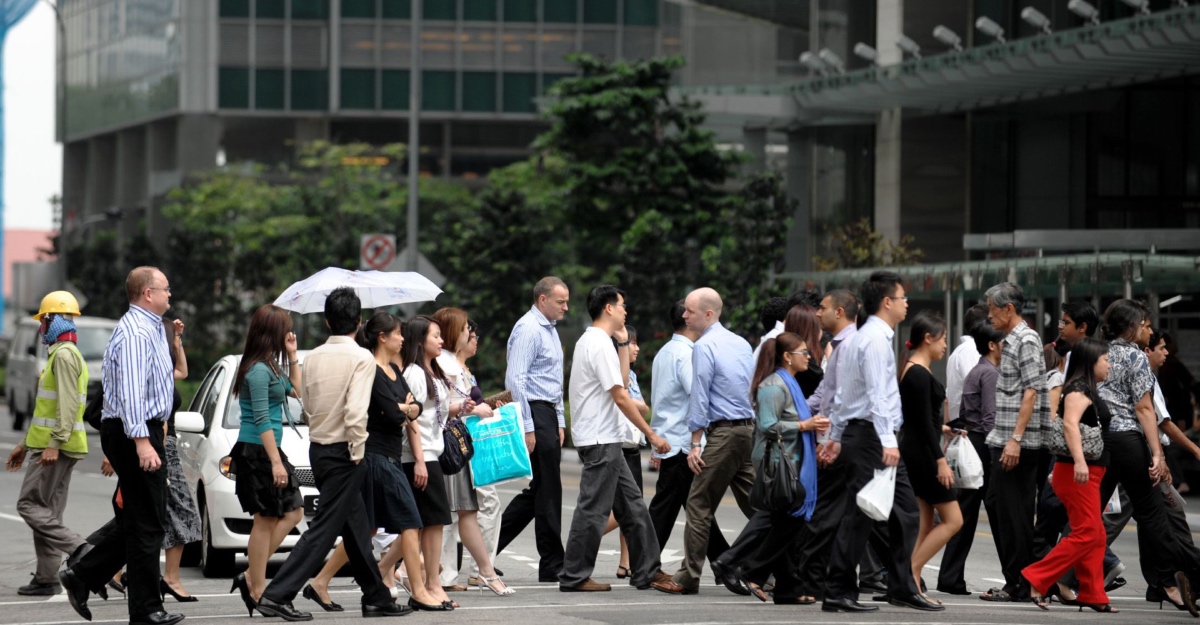As Singaporeans, planning for the future is something very much ingrained in our decision-making process.
Since primary school, parents are careful in the location of their homes, as this will affect the chances of getting into a more prestigious option.
Even when it comes to university courses, choices are mostly made not based on passion, but on their potential of helping one secure a ‘decent’ (see: well-paying) job.
This kiasu-ness doesn’t stop even when we start working.
Joining a new company doesn’t just entail checking out the positions open and reading up on its work culture – it’s also evaluating if the role (and industry) will still exist in the next few years.
While it’s harder to predict which industries will not be able to keep pace with the changing economy, there are ones that are growing, and desperately in need for manpower.
Here are 5 of these future-ready growth sectors.
Healthcare

A recent United Nations report on ageing reported that by 2050, 40.1% of Singapore’s population will be over 60 years old.
With the proportion of citizens aged 65 or older standing at 14.4% in 2017, up from 13.7% in 2016, that prediction is definitely not farfetched.
And with a rapidly greying population, it’s no surprise that demand for healthcare workers is also increasingly proportionately.
In fact, the Ministry of Health has estimated that 30,000 more healthcare workers would be needed by 2020, with nurses forming the bulk of this figure.
However, the same report also states that this direly-needed job is also the one that doesn’t have a high take-up rate; having the most unfilled vacancies.
Perhaps it’s the demands of the job (both physically and emotionally) that makes working Singaporeans shun it, but Finance Minister Heng Swee Keat revealed at the start of December 2017 that healthcare spending is set to rise “quite sharply” over the next 3 to 5 years, reaching S$13 billion in 2020.
The expenditures don’t just come from the adoption of more advanced medical technology, but also technologies that boost productivity and can aid healthcare workers.
For example, robot porters that help to deliver case notes and fragile items, and battery-operated vehicles that transport food and linen trolleys.
Gone are the days when the often thankless job of being a nurse seems akin to being a ‘maid’ to patients.
With these new technologies, tedious work loads won’t just be reduced, but jobs will be of higher value, very much focused on delivering healthcare – a plus for both patients and healthcare staff!
Infocomm And Media

You’ve probably read about the merging of 2 ministries in 2016 – Infocomm Development Authority (IDA) and the Media Development Authority (MDA) – to create Infocomm Media Development Authority (IMDA).
Aiming to lead Singaporeans in the convergence of infocomm and media (ICM), the ministry has a heavy responsibility – to fulfil the Government’s vision that by 2025, our lives would be transformed through smart living, more productive work cultures, more creative ways to create content, and more effective ways of connecting with each other.

What this means for regular Singaporeans is that they won’t just get to enjoy the conveniences that a Smart Nation brings, like living in smart HDB towns, or having their path home lighted by smart lamps; they will also be able to build complementary skills for the future.
This push is already happening through nation-wide programmes like Code@SG, which aims to equip school-going Singaporeans with coding skills and computational thinking from a young age; and ICT-ready skills-upgrading programmes at SkillsFuture and educators like General Assembly.
Those interested to work in ICM industry can also expect to find an abundance of job opportunities.
In November 2017, Minister for Communications and Information Yaacob Ibrahim revealed that by 2020, 16,000 more jobs would be created in the sector; with 13,000 expected to be professional, managerial, executive and technician (PMET) roles.
Currently, it already employs 194,000 people.
ICM is also growing at 6% a year – twice the rate of the overall economy.
But even with the wealth of opportunities ripe for the picking and its potential for growth, the industry is still one that is often misconstrued to be only for young, tech-savvy people, or ‘foreign talent’.
That’s not exactly true – in 2016, 69% of infocomm professionals employed are Singapore residents, as mentioned in the annual survey on infocomm media manpower conducted by IMDA.
A pretty decent figure, given that in the same year, the percentage of locals employed across all industries was 66.4%.
And this percentage could increase– if more Singaporeans look past the misconceptions and take a chance on the industry.
Wholesale Trade

While the term ‘wholesale’ trade might not be something you’re familiar with, its definition is simple – the trading of goods between business.
An example would be machine-making companies selling their products to factories.
Perhaps it’s due to the very ‘behind the scenes’ nature of the industry that has made the regular Singaporean overlook it, but did you know that there are actually over 34,000 wholesale trade companies in Singapore, and 325,000 people hired in the industry as well?
And this number is just set to grow, with strong demand for infrastructure and “the rise of consumerism in the region”, shared Minister for Trade and Industry S Iswaran in September 2017.
It was also then that he unveiled an industry transformation roadmap created by International Enterprise (IE) Singapore, which targets to create 10,000 new jobs in the sector by 2020.

The roadmap also details the strategies that will be undertaken to get both companies and individuals on board the Government’s vision for the sector in 2020.
While disruptive tech is swiftly and surely cutting out more manual and low skill processes, the industry can no longer be stereotyped to be entailing long, gruelling hours standing in a factory line.
Individuals who hop on board the training programmes can, in fact, expect to move into higher value positions in the years to come.
Professional Services
The Professional Services is actually more diverse than many would think. Consisting 7 sub-sectors, namely – accounting, consulting, advertising, design, legal, architecture, and engineering services.
This industry is nurtured by the Economic Development Board (EDB), which believes that Singapore is a “great base” for professional services firms.
And they have evidence for that claim.
Not only was Singapore ranked as the easiest place in the world to do business for the sixth year running by World Bank’s ‘Doing Business 2012’, its pro-business environment and extensive network of International Agreements also makes it a conducive location for companies looking to expand globally.
According to EDB, 44% of companies already have “substantial APAC headquarters located in Singapore”.
But that doesn’t mean that the industry and the companies under it can be complacent.
Earlier last year in April, the Committee on the Future Economy (CFE), set up to drive the growth and transformation of our economy for the future, created a “game plan [which] aims to position Singapore legal and accounting firms for international growth”.
Financial Services
Lastly, the financial services sector.
Alongside the rest of the ministries mentioned in the segments above, the Monetary Authority of Singapore (MAS), also unveiled their industry transformation map at the end of October 2017.

Board member of MAS Ong Ye Kung, who is also Minister for Education, revealed that the industry is expected to achieve a “4.3% industry GDP growth each year over the medium term […which is] nearly twice as fast as the overall economy”.
Also announced was the ambitious aim of creating 3,000 jobs in the financial services sector in the next three years.
An additional 1,000 jobs in the FinTech sector will also be created each year until 2020.
With an expected productivity growth of 2.4%, those seeking to be employed in the financial sector can look forward to not just more opportunities, but being exposed to the latest in technological advancements as well.
What Does This Mean For You?
To say that Singaporeans don’t know about technological disruption is a lie.
From an article we wrote a few months back, it’s clear that many know that job complacency will be their Achilles heel.

But given how ‘top-down’ the approaches seem to be in the segments above, the regular Singaporean can’t help but wonder if their jobs will soon be put in jeopardy.
That doesn’t have to be the case!
And finding out more about priority sectors and the job opportunities in them shouldn’t be rocket science either.
This is where Workforce Singapore (WSG) come to play.
A statutory board under the Ministry of Manpower (MOM) which helps to oversee the transformation of the local workforce and industry to meet going economic changes and challenges, WSG’s key focus is to help Singaporean workers (like you and I!) to not just secure quality jobs, but also meet our career aspirations.
To do this, you can visit WSG’s Careers Connect to access an “expanded suite of customised career matching services”.
These include resources like job tips, industry information, and even guided help for those overcoming stress from the trauma of job loss or unsuccessful job applications.
Other than the centres, the Professional Conversion Programme (PCP), part of WSG’s Adapt and Grow initiative, is a career conversion programme targeted at PMETs and mid-career switchers.
Via job placements with on-the-job training in participating companies, the programme typically lasts 3 to 24 months, and there are currently over 50 PCPs across more than 20 sectors.
Another Adapt and Grow initiative, the Career Support Programme (CSP), PMETs looking to be employed can also get to take on new jobs that pay $3,600 or more.
Sounds too good to be true?
Not really, when you read about how CSP helps employers to employ skilled PMETs with subsidised salary support.
If you are one a job-hunt; head on over to MyCareersFuture.sg to search and start applying for jobs!
Still fraught with worries? WSG has a stable of certified Career Coaches that can help guide you through the entire job search and career planning and development process.
You can also opt to connect with a Coach via the phone or email if you’re uncomfortable with face-to-face sessions,.
And if you’re a more hands-on type of person, sign-up for any of WSG’s more than 100 career events organised yearly.
Participants can expect to gain career insights, network with other individuals, speak to employers, attend career preparation workshops, and for those with a pressing need to find a new job, participate in walk-in interviews.
So what are you waiting for? Check out the full listing of events by WSG here, and resources to aid your career journey here!
This article was written in collaboration with Workforce Singapore.








